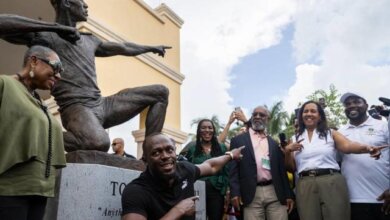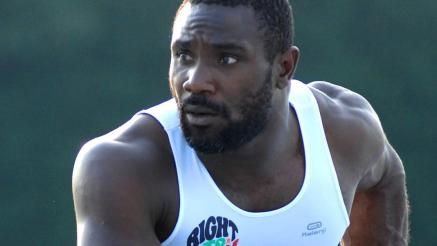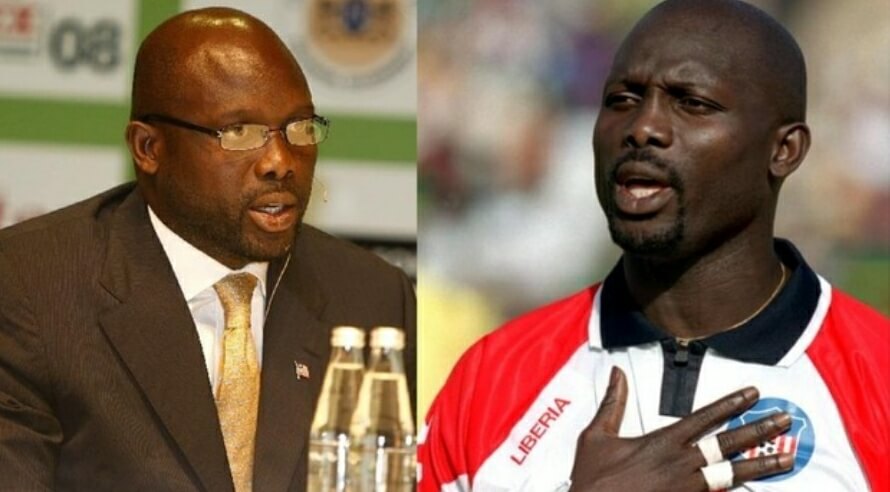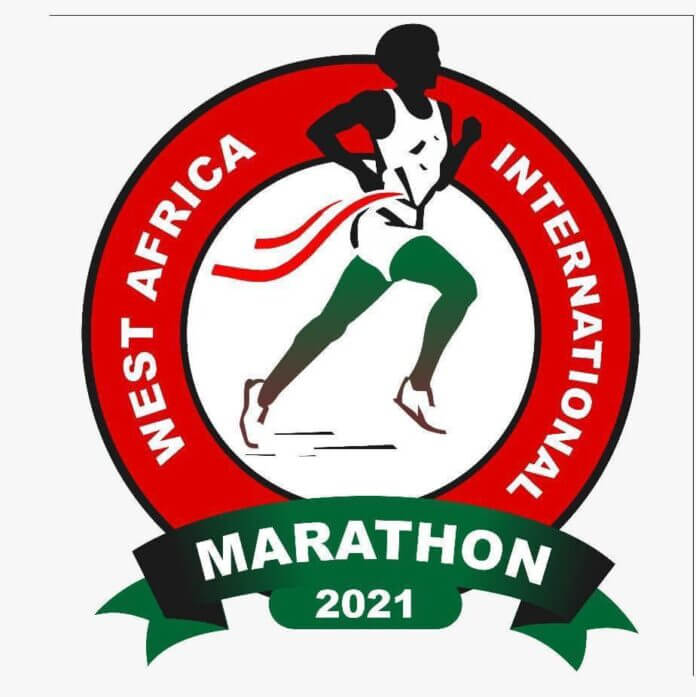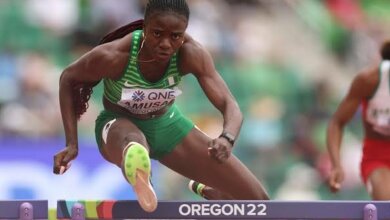Paulo Amotun Lokoro of South Sudan Runs for Refugee Olympic Team
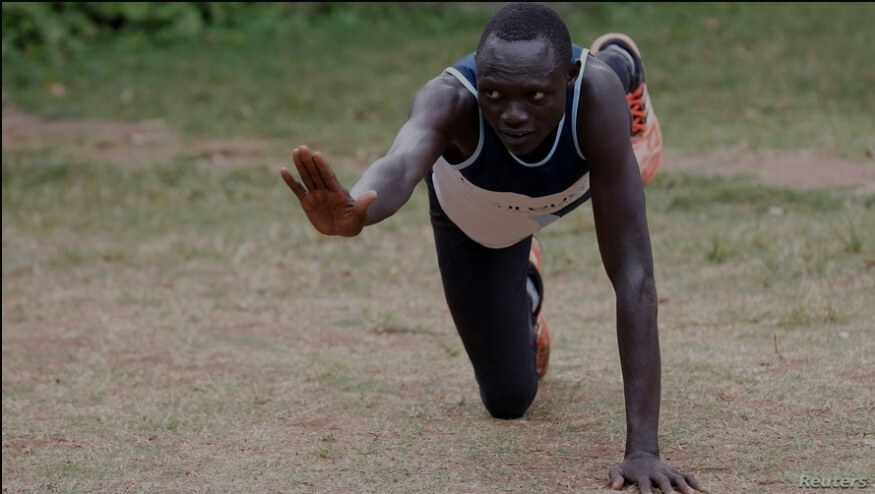
KAMPALA, UGANDA – When South Sudanese refugee Paulo Amotun Lokoro fled conflict from the country’s Western Equatoria state in 2006, little did he know he eventually would participate in international sports. He simply loved football, a game he usually played with fellow refugees at the massive Kakuma camp in northwestern Kenya.
But his entrée to the highest echelon of sports – the Olympic Games – came after he was encouraged to participate in a 2015 peace-building marathon at Kakuma. It was organized by the U.N. refugee agency and Kenya’s Tegla Loroupe, an Olympian who was the first African woman to win a major marathon, starting with New York City in 1994.

“I didn’t know I would go far. … I was just running,” Lokoro said of the Kakuma marathon. “We went to the field and jogged. I didn’t have the psychology of being in front or behind. My aim was to just follow the people going in front of me. I found some guys were tired and then I led them.”
Now Lokoro is among an elite group of 29 athletes – including 10 originally from Africa – named to the International Olympic Committee’s Refugee Olympic Team. He will compete in the Summer Games in Tokyo from July 23 to Aug. 8.
Lokoro, a runner competing in the 1500 meters, participated in the Rio Olympics in August 2016. Other returning Olympians on the refugee team include runners Anjelina Nadai Lohalith, James Nyang Chiengjiek and Rose Nathike Likonyen, all originally from South Sudan; swimmer Yusra Mardini, from Syria; and Judoka Popole Misenga, from the Democratic Republic of Congo.
Read also: UN Urges International Community Not to Give Up on South Sudan
Another South Sudanese runner, Matthew Lam Joar, will return to the Refugee Olympic Team – this time as general assistant to the coaching staff. Though he did not wind up going to Rio, he is eager to share his experiences with other refugees.
“I will be cheering for my team – a team that I was part of and still [am] part of,” he said. “We believe they are the best guys because they have the courage to start running. They are world class, running with the best in the world.”
The Tokyo refugee team was selected based on athletic performance, refugee status as confirmed by the UN refugee agency (UNHCR), and diversity in terms of sports, gender and regions.
In announcing the team in June, IOC President Thomas Bach said it was important to have refugees join with other athletes from all over the globe to “send a powerful message of solidarity, resilience and hope to the world.”
Robin Toskin, a sports editor at Kenya’s Standard Group, elaborated on that thought.
“If you look at what the Olympics is all about, it’s about being in a peaceful and better world where there is mutual understanding, spirit of friendship, solidarity and fair play,” Toskin told VOA. “For the refugees to participate at the Olympics is a great step toward integrating refugees who are living outside their countries that it was not out of their making but because of other forces beyond their reach.”
Lokoro said that though he’s glad to be settled in Kenya, he hopes for peace one day in South Sudan so he can compete in its name in international contests such as the Olympics.
“One day, one time, if my country settles down, maybe I will go back and represent my country,” he said.
The 29 refugees competing in the Summer Games are from Afghanistan, Cameroon, Democratic Republic of Congo, Republic of Congo and Eritrea. Others are from Iraq, Syria, Venezuela, South Sudan and Sudan. They will compete in a variety of sports, such as swimming, athletics, badminton, boxing, canoeing, cycling, judo, karate, shooting, taekwondo, weightlifting and wrestling.
The refugees, their country of origin and their sports are:
• Abdullah Sediqi, Afghanistan, taekwondo;
• Ahmad Alikaj, Syria, judo;
• Ahmad Badreddin Wais, Syria, cycling;
• Aker Al Obaidi, Iraq, wrestling;
• Alaa Maso, Syria, swimming;
• Anjelina Nadai Lohalith, South Sudan, track;
• Aram Mahmoud, Syria, badminton;
• Cyrille Fagat Tchatchet II, Cameroon, weightlifting;
• Dina Pouryounes Langeroudi, Iran, taekwondo;
• Dorian Keletela, Democratic Republic of Congo, track;
• Eldric Samuel Sella Rodriguez, Venezuela, boxing;
• Hamoon Derafshipour, Iran, karate;
• Jamal Abdelmaji Eisa Mohammed, Sudan, track;
• James Nyang Chiengjiek, South Sudan, track;
• Javad Mahjoub, Iran, judo;
• Kimia Alizadeh Zenozi, Iran, taekwondo;
• Luna Solomon, Eritrea, shooting;
• Masomah Ali Zada, Afghanistan, cycling;
• Muna Dahouk, Syria, judo;
• Nigara Shaheen, Afghanistan, judo;
• Paulo Amotun Lokoro, South Sudan, track;
• Popole Misenga, Democratic Republic of Congo, judo;
• Rose Nathike Likonyen, South Sudan, track;
• Saeid Fazloula, Iran, canoe;
• Sanda Aldass, Syria, judo;
• Tachlowini Gabriyesos, Eritrea, track;
• Wael Shueb, Syria, karate;
• Wessam Salamana, Syria, boxing;
• Yusra Mardini, Syria, swimming
This report originated in the English to Africa Service of the Voice of America.
Written by Mugume Davis Rwakaringi
Oral Ofori is Founder and Publisher at www.TheAfricanDream.net, a digital storyteller and producer, and also an information and research consultant.

